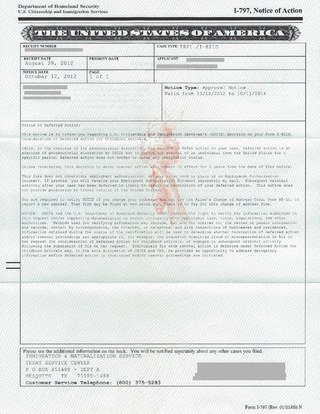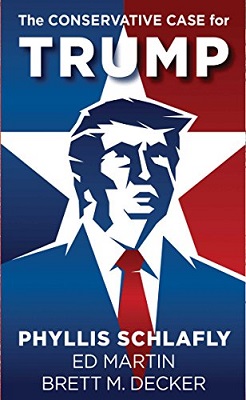Related Research Articles

The Immigration and Nationality Act of 1965, also known as the Hart–Celler Act and more recently as the 1965 Immigration Act, is a landmark federal law passed by the 89th United States Congress and signed into law by President Lyndon B. Johnson. The law abolished the National Origins Formula, which had been the basis of U.S. immigration policy since the 1920s. The act formally removed de facto discrimination against Southern and Eastern Europeans as well as Asians, in addition to other non-Western and Northern European ethnic groups from the immigration policy of the United States.
The H-1B is a visa in the United States under the Immigration and Nationality Act, section 101(a)(15)(H), that allows U.S. employers to employ foreign workers in specialty occupations. A specialty occupation requires the application of specialized knowledge and a bachelor's degree or the equivalent of work experience. The duration of stay is three years, extendable to six years, after which the visa holder can reapply. Laws limit the number of H-1B visas that are issued each year. There exist congressionally mandated caps limiting the number of H-1B visas that can be issued each fiscal year, which is 65,000 visas, and an additional 20,000 set aside for those graduating with master’s degrees or higher from a U.S. college or university. An employer must sponsor individuals for the visa. USCIS estimates there are 583,420 foreign nationals on H-1B visas as of September 30, 2019. The number of issued H-1B visas have quadrupled since the first year these visas were issued in 1991. There were 206,002 initial and continuing H-1B visas issued in 2022.

The Mexico–United States border wall is a series of vertical barriers along the Mexico–United States border intended to reduce illegal immigration to the United States from Mexico. The barrier is not a continuous structure but a series of obstructions variously classified as "fences" or "walls".
Reforming the immigration policy of the United States is a subject of political discourse and contention. Immigration has played an essential part in American history. Some claim that the United States maintains the world's most liberal immigration policy.
The Center for Immigration Studies (CIS) is an American anti-immigration think tank. It favors far lower immigration numbers, and produces analyses to further those views. The CIS was founded by historian Otis L. Graham and eugenicist and white nationalist John Tanton in 1985 as a spin-off of the Federation for American Immigration Reform. It is one of a number of anti-immigration organizations founded by Tanton, along with FAIR and NumbersUSA.

The Secure Fence Act of 2006, also labelled H.R. 6061, is an act of the United States Congress which authorized and partially funded the construction of 700 miles (1,125 km) of fencing along the Mexican border. The Act was signed into law on October 26, 2006, by U.S. President George W. Bush, who stated at the time that the Act would "help protect the American people", would "make our borders more secure", and was "an important step toward immigration reform".

Manasvi Mamgai is an Indian model, actress and activist. She won the title of Femina Miss India World 2010 and represented India at Miss World 2010. She previously won the titles of Miss India Tourism International and Miss Tourism International 2008. In 2016, Manasvi, became the Indian Ambassador to the Republican Hindu Coalition.
The economic impact of illegal immigrants in the United States is challenging to measure, and politically contentious. Research shows that undocumented immigrants increase the size of the U.S. economy/contribute to economic growth, enhance the welfare of natives, contribute more in tax revenue than they collect, reduce American firms' incentives to offshore jobs and import foreign-produced goods, and benefit consumers by reducing the prices of goods and services.

Deferred Action for Childhood Arrivals, colloquially referred to as DACA, is a United States immigration policy that allows some individuals with unlawful presence in the United States after being brought to the country as children to receive a renewable two-year period of deferred action from deportation and become eligible for an employment authorization document in the U.S. To be eligible for the program, recipients cannot have felonies or serious misdemeanors on their records. Unlike the proposed DREAM Act, DACA does not provide a path to citizenship for recipients. The policy, an executive branch memorandum, was announced by President Barack Obama on June 15, 2012. This followed a campaign by immigrants, advocates and supporters which employed a range of tactics. U.S. Citizenship and Immigration Services (USCIS) began accepting applications for the program on August 15, 2012.

Miguel B. "Mike" Fernandez is an American health care industry businessman, investor, and philanthropist. He is the founder of MBF Healthcare Partners, a private equity firm founded in 2005 in Coral Gables, Florida. Fernandez is a major Republican donor.

The Border Security, Economic Opportunity, and Immigration Modernization Act of 2013 was a proposed immigration reform bill introduced by Sen. Charles Schumer (D-NY) in the United States Senate. The bill was co-sponsored by the other seven members of the "Gang of Eight", a bipartisan group of U.S. Senators who wrote and negotiated the bill. It was introduced in the Senate on April 16, 2013, during the 113th United States Congress.
Shalabh "Shalli" Kumar is a Chicago-based Indian-American industrialist and political donor affiliated with the Republican Party. Kumar was a prominent financial backer of Donald Trump's presidential campaign in the 2016 election.

The Trump wall, commonly referred to as "The Wall", is an expansion of the Mexico–United States barrier that started during the U.S. presidency of Donald Trump and was a critical part of Trump's 2016 presidential campaign platform leading up to the year's election. Throughout his campaign, Trump called for the construction of a border wall. He said that, if elected, he would "build the wall and make Mexico pay for it". Then-Mexican president Enrique Peña Nieto rejected Trump's claim that Mexico would pay for the wall; all construction in fact relied exclusively on U.S. funding.

The Conservative Case for Trump is a 2016 book written by Phyllis Schlafly, with Ed Martin and Brett M. Decker, arguing that American conservatives should vote for Donald Trump in the 2016 presidential election. It was published the day after Schlafly's death, four months after Trump secured the Republican Party nomination in May and two months before he won the general election. The authors describe Trump as someone who promises the most conservative presidency since Ronald Reagan's.

Immigration policy, including illegal immigration to the United States, was a signature issue of former U.S. president Donald Trump's presidential campaign, and his proposed reforms and remarks about this issue generated much publicity. Trump has repeatedly said that illegal immigrants are criminals.

The RAISE Act is a bill first introduced in the United States Senate in 2017. Co-sponsored by Republican senators Tom Cotton and David Perdue, the bill seeks to reduce levels of legal immigration to the United States by 50% by halving the number of green cards issued. The bill would also dramatically reduce family-based immigration pathways; impose a cap of 50,000 refugee admissions a year; end the visa diversity lottery; and eliminate the current demand-driven model of employment-based immigration and replace it with a points system. The bill received the support of President Donald Trump, who promoted a revised version of the bill in August 2017, and was opposed by Democrats, immigrant rights groups, and some Republicans.
A points-based immigration system is an immigration system where a noncitizen's eligibility to immigrate is determined by whether that noncitizen is able to score above a threshold number of points in a scoring system that might include such factors as education level, wealth, connection with the country, language fluency, existing job offer, or others. Points-based immigration systems are sometimes also referred to as merit-based immigration systems.
The United States federal government shutdown from midnight EST on December 22, 2018, until January 25, 2019 was the longest government shutdown in history and the second and final federal government shutdown involving furloughs during the presidency of Donald Trump. It occurred when the 115th Congress and Trump could not agree on an appropriations bill to fund the operations of the federal government for the 2019 fiscal year, or a temporary continuing resolution that would extend the deadline for passing a bill. The Antideficiency Act prohibits federal departments or agencies from conducting non-essential operations without appropriations legislation in place. As a result, nine executive departments with around 800,000 employees had to shut down partially or in full, affecting about one-fourth of government activities and causing employees to be furloughed or required to work without being paid. The Congressional Budget Office estimated the shutdown cost the American economy at least $11 billion USD, excluding indirect costs that were difficult to quantify.

Reihan Morshed Salam is a conservative American political commentator, columnist and author who since 2019 has been president of the Manhattan Institute for Policy Research. He was previously executive editor of National Review, a columnist for Slate, a contributing editor at National Affairs, a contributing editor at The Atlantic, an interviewer for VICE and a fellow at the University of Chicago Institute of Politics.

The U.S. Citizenship Act of 2021 was a legislative bill that was proposed by President Joe Biden on his first day in office. It was formally introduced in the House by Representative Linda Sánchez. It died with the ending of the 117th Congress.
References
- ↑ Smilowitz, Elliot (17 November 2015). "Republican Hindu Coalition rolls out GOP heavy hitters for launch". The Hill .
- ↑ "Republican Hindu Coalition Offers to Raise $25 Billion for Trump's Wall to 'Protect Our Children'". News18.
- ↑ "High-skilled Indian workers rally for Trump's merit-based immigration plan". The Washington Post .